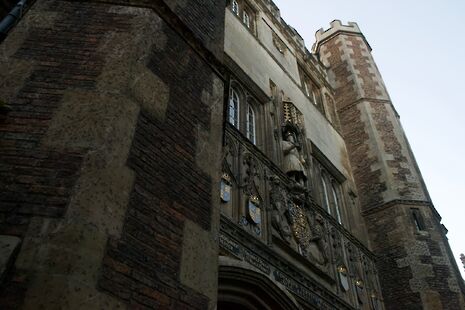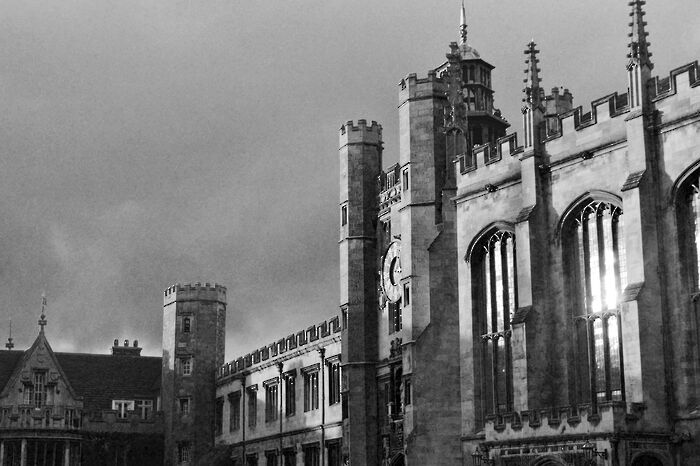Trinity confirms exit from national pensions scheme – over 230 academic staff will now boycott supervising Trinity students
The college will exit the scheme next week, isolating it from the higher education sector

Trinity College’s Council has confirmed today that the college will exit the national pensions scheme for university staff next week, triggering a boycott of over 230 Cambridge academic staff from supervising Trinity students or engaging in work to support the college’s teaching or research.
Once the college exits the national pensions scheme, the Universities Superannuation Scheme (USS), Trinity academics will “become members of new pensions arrangements administered by the College, providing the same benefits as [the national pensions scheme]”, according to a statement by the college.
This week, Varsity revealed that the college’s decision could lead the entire national pensions scheme into uncharted territory: if a second sizable employer were to exit the scheme, official advisors have said that the scheme’s overall rating of financial stability would be downgraded from ‘strong’ to ‘tending to strong’.
The Council’s decision to leave has faced substantial backlash from across the University. After Varsity reported on the Council’s vote to leave earlier this week, an open letter has been circulated and signed by 232 academics calling on the Council and the fellowship to stay in the national scheme. The College declined to comment to Varsity about the impact of the boycott on its teaching and research.
Leaked documents show that Trinity’s exit, considered by many as marking a betrayal of the sector, has been estimated to cost £30m. The college’s statement said that the total sum, which will be calculated by the USS actuary on 31st May when the college exits the scheme, “will be in the region of 2% of the College’s total assets”.
The decision to leave the national pensions scheme was motivated by what college officials described as an unlikely but existential risk of less financially-secure higher education institutions collapsing, in a chain effect leaving wealthier institutions, such as Trinity, propping up weaker ones.
In the college’s statement, it remarked that “this decision to leave USS will remove the remote but existential risk to the College arising from continued participation in USS.”
The financial situation of the national pensions scheme was at the centre of proposed pensions changes in 2017 that sparked 14 days of strike action by university employees across the UK last year. Senior USS officials have spoken on what they perceived as the scheme having an increasingly vulnerable financial position – Trinity’s exit could bolster the argument that the scheme should be taking on less financial risk, and should be offering pensions arrangements which involve a lower degree of risk.
Trinity’s Senior Bursar Rory Landman has claimed that the college’s decision to exit the scheme would enable the college to continue to provide financial support to collegiate Cambridge, commenting: “This decision also helps to ensure Trinity’s continued and substantial financial support to the whole of Collegiate Cambridge”.
He added, “This is not a decision taken lightly by the College Council. Following substantial legal and actuarial advice, and bearing in mind our responsibilities as Charity Trustees of Trinity, we believe leaving USS is in the best interests of the College”.
Jenny Marchant, vice-president of the Cambridge branch of the University and College Union, rebuked the college’s statement, saying: “Trinity College have tried to paint the picture that their decision to leave USS is in the best interests of the University. However their statement omits a crucial piece of information; when citing PWC's comment that ‘withdrawal does not in itself weaken the covenant’, PWC went on to say that if one more strong employer leaves, the employer covenant that supports USS would be downgraded, with serious consequences for the whole Scheme - and its 400,000 members.”
Speaking on the pledge to withdraw labour from Trinity, Marchant added: “Cambridge staff understand this very real existential risk to their pensions, which is why they have withdrawn their support from Trinity. Union and non-union USS members standing together make clear to any other rich Oxbridge colleges considering following Trinity what the impact on their teaching and research will be.”
Varsity has contacted USS for comment on Trinity’s announcement.
The open letter opposing Trinity’s decision argued that the decision by the college “conceive[d] of Trinity’s interests in the narrow terms of its own balance sheet rather than in terms of the wider ecology of education and research in the UK”, adding that following the decision, “Trinity cannot expect the continued support of other institutions and staff for its own activities”.
The Council’s announcement comes two months after members voted 9 to 1 that they were “minded to” exit the scheme.
Meeting minutes leaked to Varsity show that Landman had been considering the exit for five years.
- Updated, 25th May: This article was updated to include a statement from Cambridge UCU.
 News / Report suggests Cambridge the hardest place to get a first in the country23 January 2026
News / Report suggests Cambridge the hardest place to get a first in the country23 January 2026 Comment / Cambridge has already become complacent on class23 January 2026
Comment / Cambridge has already become complacent on class23 January 2026 News / Students condemn ‘insidious’ Israel trip23 January 2026
News / Students condemn ‘insidious’ Israel trip23 January 2026 News / Cambridge ranks in the top ten for every subject area in 202623 January 2026
News / Cambridge ranks in the top ten for every subject area in 202623 January 2026 Comment / Gardies and Harvey’s are not the first, and they won’t be the last23 January 2026
Comment / Gardies and Harvey’s are not the first, and they won’t be the last23 January 2026











